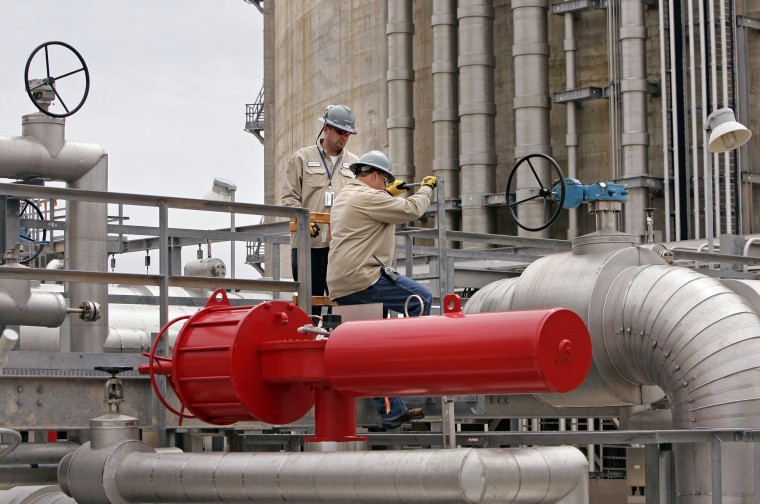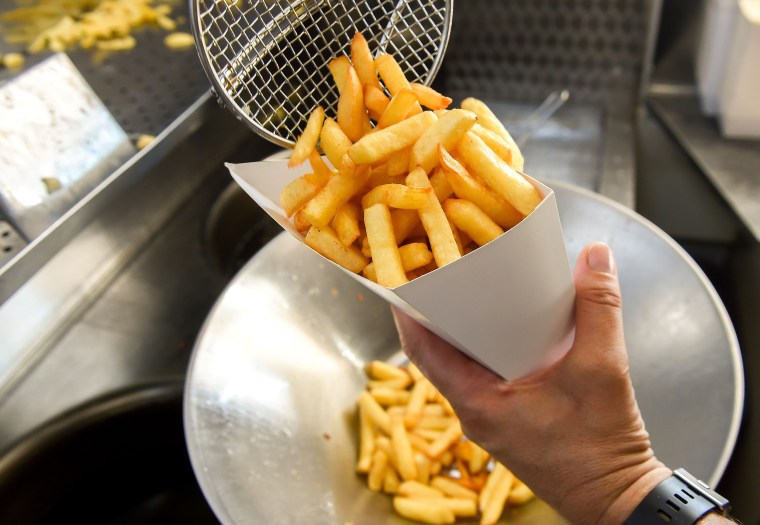The announcement this week came with the dry title "Department of Energy Authorizes Additional LNG Exports from Freeport LNG."
"Increasing export capacity from the Freeport LNG project is critical to spreading freedom gas throughout the world by giving America's allies a diverse and affordable source of clean energy," it quoted Energy Undersecretary Mark Menezes as saying in explaining why the Energy Department was approving expansion of exports of liquefied natural gas, or LNG.
Yes, he said "freedom gas."
The announcement goes on to quote Steven Winberg, the Energy Department's assistant secretary for fossil energy, as saying, "With the U.S. in another year of record-setting natural gas production, I am pleased that the Department of Energy is doing what it can to promote an efficient regulatory system that allows for molecules of U.S. freedom to be exported to the world."
The constructions aren't new. When he signed similar orders early this month, Energy Secretary Rick Perry told reporters in Brussels that "the United States is again delivering a form of freedom to the European continent," adding, "And rather than in the form of young American soldiers, it's in the form of liquefied natural gas."
According to Energy News Bulletin, a trade journal, a reporter asked Perry whether he thought "freedom gas" was an appropriate name for liquefied natural gas. "Yes, I think you may be correct in your observation," he replied.
Liquefied natural gas is a big deal right now. The United States and China have been in a trade war since President Donald Trump raised import tariffs on $200 billion of Chinese imports last year, to which the Chinese government responded by raising tariffs on $60 billion in U.S. goods.

One of the casualties of the trade war is the liquefied natural gas industry, on which China — the world's second-biggest importer of the fuel — raised tariffs by 25 percent.
U.S. jobs are at stake, and in a tradition stretching back more than a century, the United States is deploying heavy ammunition: the dictionary. "Freedom gas" and "molecules of U.S. freedom" join a long history of patriotic renaming of goods and products associated with countries with which the United States isn't on particularly good terms with.
The most famous example is probably the House cafeteria's renaming of french fries as "freedom fries" in 2003, when the French government opposed the U.S.-led war in Iraq.
(Depending on whom you believe, french fries aren't even French — they're Belgian. Other derivations argue that they're so-called because they were originally prepared by "frenching," or slicing potatoes into thin strips and sautéing them in a pan.)
French fries returned to the cafeteria with little fanfare three years later. Less well remembered is that the cafeteria also renamed French toast — which dates to a fourth- or fifth-century book of Roman recipes called "Apicius" and was popularized in France during the 15th century — as "freedom toast."
It wasn't an original idea.
Americans have been calling hot dogs hot dogs as early as the 1890s; references from the time mention "hot-dogs" as a joking name for what were, at the time, called "dachsund sausages" or "frankfurters," which were imported from Germany in the early 19th century, according to the National Hot Dog & Sausage Council.
The new name really took off during World War I amid a frenzy of anti-German sentiment, when the government sought to get Americans to call frankfurters "liberty sausages." Patriotic Americans even sent the Food Administration (now the Food and Drug Administration) a petition to rename sauerkraut as "liberty cabbage."
Likewise Salisbury steak, which until World War I was generally called "Hamburg steak" or "Hamburg-style American fillet" after it was brought to the United States by immigrants from Hamburg, Germany, during the first half of the 19th century, according to "The Hamburger: A History," published by Yale University Press in 2008.
So "freedom this" and "freedom that" are American traditions. But don't count Washington Gov. Jay Inslee, a Democratic candidate for president, as among those impressed by "freedom gas" or "molecules of U.S. freedom."
Inslee, who has made clean energy to reduce U.S. dependence on fossil fuels a centerpiece of his campaign, ridiculed the appellations Wednesday on Twitter, first tweeting "This has to be a joke" and following up in a more serious vein:
